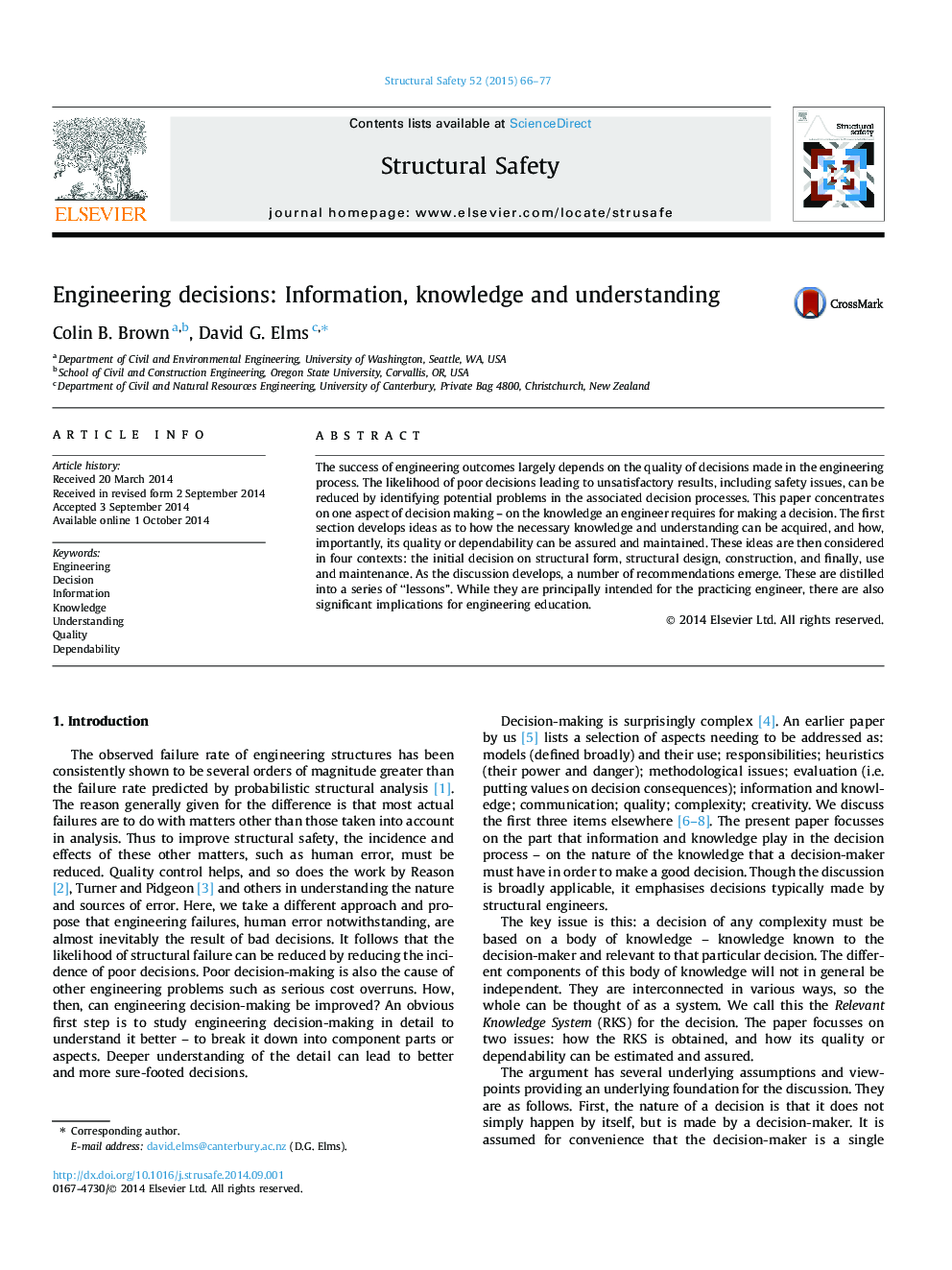| Article ID | Journal | Published Year | Pages | File Type |
|---|---|---|---|---|
| 307519 | Structural Safety | 2015 | 12 Pages |
•Analysis of engineering decision-making can lead to better outcomes.•Emphasis is on the relevant knowledge system (RKS) required for a decision.•The nature of the RKS, its formation and assessment of its quality are discussed.•The ideas are applied to four areas of structural engineering.•Detailed recommendations are set out in the text as a series of “lessons”.
The success of engineering outcomes largely depends on the quality of decisions made in the engineering process. The likelihood of poor decisions leading to unsatisfactory results, including safety issues, can be reduced by identifying potential problems in the associated decision processes. This paper concentrates on one aspect of decision making – on the knowledge an engineer requires for making a decision. The first section develops ideas as to how the necessary knowledge and understanding can be acquired, and how, importantly, its quality or dependability can be assured and maintained. These ideas are then considered in four contexts: the initial decision on structural form, structural design, construction, and finally, use and maintenance. As the discussion develops, a number of recommendations emerge. These are distilled into a series of “lessons”. While they are principally intended for the practicing engineer, there are also significant implications for engineering education.
